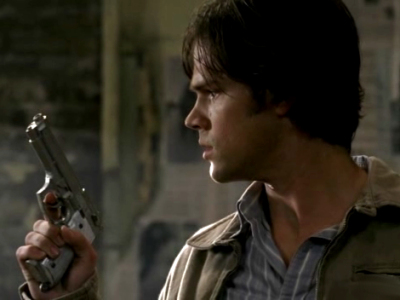Picture it: It’s a typical day here at Millikin. Classes are in session, students are going about their daily routine. All of a sudden, a man with a gun opens fire on the fourth floor of Shilling. What now? What would you do? Many of you probably think that this scenario will never happen, but the sad reality is, it’s always a possibility.
According to Chris Ballard, director of safety and security, Millikin has a risk threat assessment team in place. If the above scenario were to ever happen, and pray to God it never will, the university would need to have all hands on deck. Send word now would be utilized to alert students and faculty on the situation. Safety and Security cannot do a lot first hand, but would facilitate with Decatur law enforcements. Ballard and his staff would make sure that law enforcements would get to where they need to be as quickly as possible. It would be Millikin’s role as a community to communicate.
Now, some of you are probably wondering why I’m starting this article out with a horrifying scenario. Well, it’s been a hot topic since the middle of December. The Newtown school shooting in Connecticut has sparked an ongoing gun control controversy that has risen to its highest point. Although it might be one of this country’s top issues, it is one of the latest to be debated solely in terms of fluff. Where is the examination of hard facts?
The media, as usual, is having a field day. There are two factors that gun control is being dominated by: the Second Amendment (the right to bear arms) and the National Rifle Association (NRA). The actual factual question that I’m not hearing is “do gun control laws actually reduce gun crimes in general? Do hard facts prove that society is safer with gun control laws? There have been numerous factual studies that show no reduction in gun crimes, including murder, under gun control laws.
Because of the U.S. Constitution’s well-establish second amendment, the U.S. is known as the most heavily armed society in the world. It is easier for people within this country to obtain a handgun compared to other nations. The rules for carrying a handgun in public vary by local jurisdiction. Open carry may be allowed, but concealed carry requires a permit in select states. 42 states assume that an applicant applying for a permit has no criminal record and has taken a firearms class. However, before one can obtain a firearm, one must undergo a background check according to the Brady Handgun Violence Prevention Act. Signed into law by President Bill Clinton in 1993, the act requires individuals to undergo background checks before purchasing a firearm from a federally licensed dealer, manufacturer or importer.
Sounds like a pretty sweet deal, right? Before anyone can buy a gun, they must have a background check. No harm in that. Unfortunately, it’s what happens after the individual buys the gun. Just because they might not have a criminal past doesn’t mean they’re not going to have a criminal future. We don’t know what the use of that gun is going to be for, which is scary. When I was talking with Ballard, he made a good point. Take a look at the some of the most well-known shooting incidents: Virginia Tech, Northern Illinois University, Aurora, Colo. Movie theatre shooting and the Newtown, Conn. school shooting. The common theme revolving all four of the shooters is mental health. They might not have had a criminal past, but we don’t get deep into the mental health issues. President Obama has even made key statements that mental health is a loophole in background checks. The Newtown shooter was denied being allowed to purchase a gun. He then committed homicide and stole the weapon, proceeding to the school.
Many feel that by owning a gun, they will feel safer. It’s practically pepper spray to the third power. They give off a sense of security, yes, but how we use the gun is a whole different story. Owning a weapon can go to one’s head, and they will abuse that power. I read a story about a gas station manager who was being robbed at gunpoint a few years ago. He had a handgun concealed behind the counter, grabbed it, and shot at the robbers, hitting one in the chest. The other one fled while the manager chased after him. Unsuccessful at catching him, the manager returned to the robber who was lying on the floor in agonizing pain. The manager shot him nine more times before calling 911. This incident was caught on tape and the manager was arrested for murder.
There is a pro and con side to this story. Claiming self-defense, the manager had the right to pull out his gun and shoot at the armed robbers. However, he should not have shot the robber, who was now disarmed, killing him. He abused his power as a gun owner.
If the government can prove to use that gun control laws will in fact keep us safer, then so be it. There needs to be better excuses to owning guns than the typical “venting emotions” and “making a statement.” Making a statement can lead to the loss of life. I firmly believe that the issue is all within the gun’s controller. The cliché saying, “Guns don’t kill people, people kill people” is absolutely correct. Restrictions might be needed on the guns, but the higher restrictions need to be on the buyers.

